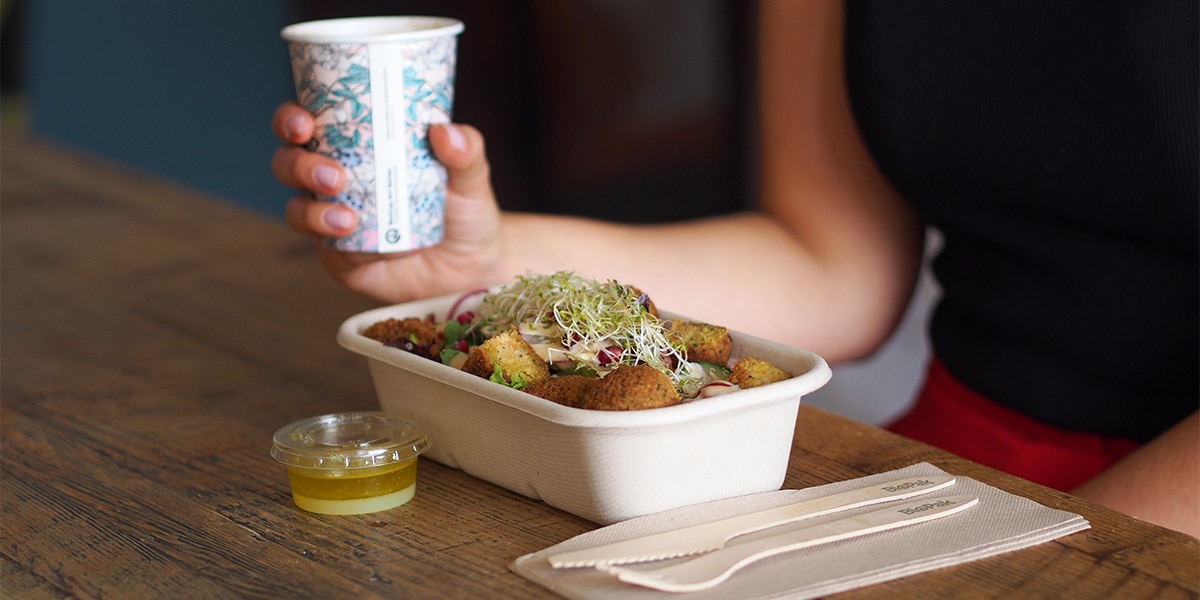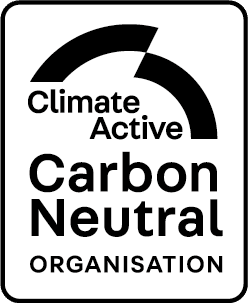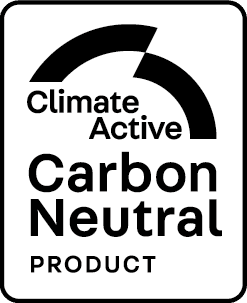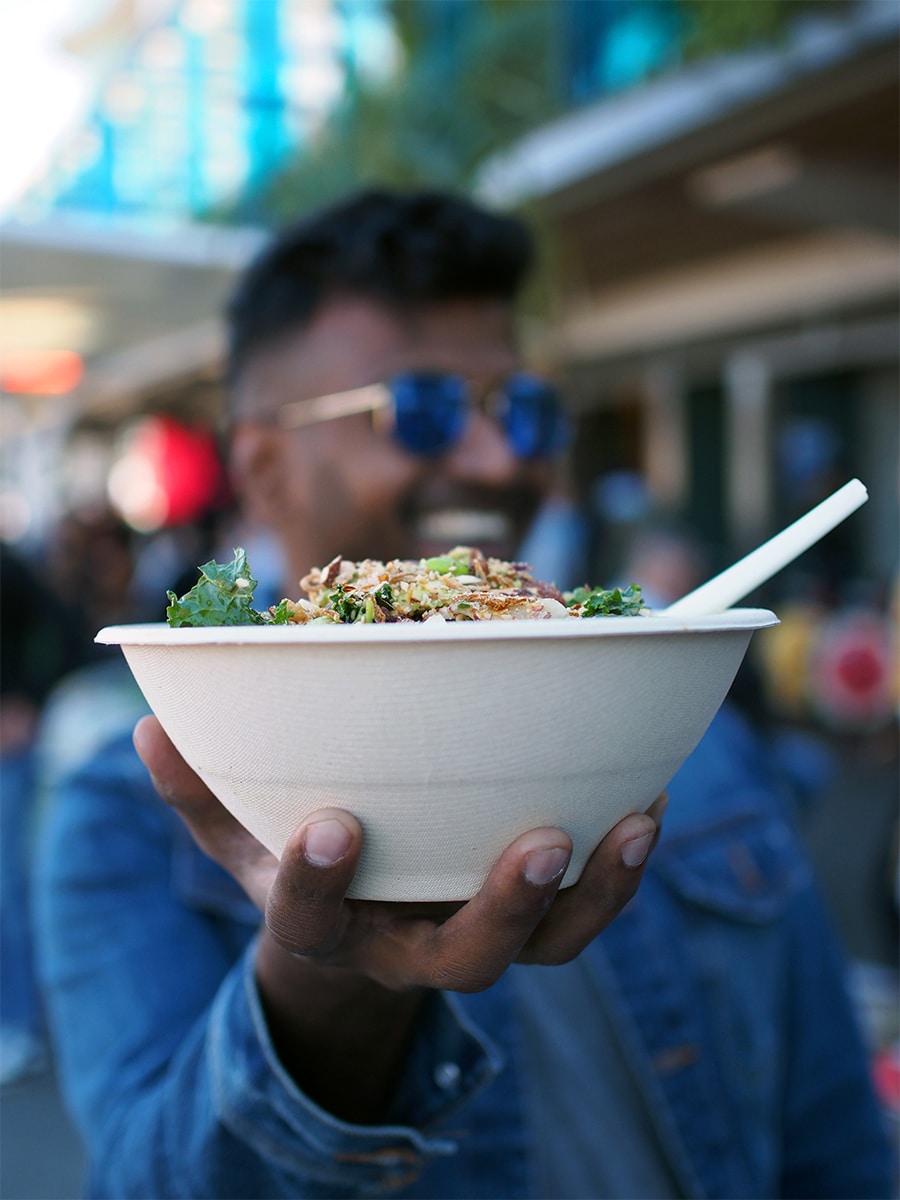Manufacturing disposable, compostable products – now certified carbon neutral

Most people recognise the name BioPak from their morning take away coffee. BioPak’s cups, plates and containers appear everywhere. The name itself conveys the message, it is an environmentally sound item.
BioPak produces a range of disposable foodservice products that break down into nutrient-rich compost when processed along with foodscraps. The products are certified home or industrial compostable to Australian standards.
In 2019, BioPak took their sustainability efforts further. The company became certified carbon neutral under Climate Active, the Australian Government-recognised program. Prior to Climate Active, BioPak had undertaken carbon neutrality through a different scheme, but felt the rigorously-verified Federal Government certification was the next logical step.
BioPak’s certification took in the totality of business activities and the company’s focus on the circular economy: responsibly sourced materials and suppliers, manufacturing processes, and environmentally safe, disposable products. BioPak works closely with entities such as local councils and waste management services to ensure these products can be collected and turned into quality compost, along with other types of organic wastes. CEO Gary Smith says, “Innovation is at the heart of what we do. For more than a decade we have been working with companies across Australia and New Zealand to provide a viable solution to our current waste crisis.”
Operations, products and net zero emissions

 BioPak certified both its operations and its full product range. They chose to work with Pangolin Associates because of Pangolin’s expertise in the Climate Active program, and their experience certifying products, including wine, fabrics and beef. Pangolin provided a Life Cycle Assessment (LCA) for the carbon inventory. Put another way, this is a greenhouse gas assessment, or a comprehensive carbon footprint.
BioPak certified both its operations and its full product range. They chose to work with Pangolin Associates because of Pangolin’s expertise in the Climate Active program, and their experience certifying products, including wine, fabrics and beef. Pangolin provided a Life Cycle Assessment (LCA) for the carbon inventory. Put another way, this is a greenhouse gas assessment, or a comprehensive carbon footprint.
Given the substantial quantity of BioPak products, Pangolin calculated emissions on 15 groups of items based on type and construction. They also provided a hybrid LCA methodology that combined manufacturing, input-output analysis (total emissions of the categories plus that of the value of units sold), and sea and road distribution and freight data.
For BioPak, scope 3 emissions factors came from the methodologies and calculations of both Australian and Chinese economies, the latter providing the manufactured product.
Offsetting emissions
Emissions that BioPak could not eliminate in its Emissions Reduction Strategy (ERS) had to be offset with government-approved carbon credit projects. This is the final component for certification following the carbon inventory and verification processes, and BioPak’s ERS.
Through Pangolin, they purchased carbon credits from the Liucheng Biomass Power Generation project. Liucheng is based in Guangxi Zhuang Province in Southern China, which is a good fit as BioPak sources sugarcane pulp from this region. Like BioPak, the Liucheng project turns waste into an asset: mulberry and sugarcane leaf residue from agricultural activities become clean, renewable energy. The project also supports local communities.
Reducing waste, and much more

For BioPak, a smaller footprint is an ongoing effort. They have introduced a new range of products with a lower carbon footprint, and look for opportunities to reduce emissions in all areas of business. Impressively, they have a strategy for becoming carbon negative through the diversion of waste from landfill. The implementation of a national compost service for customers’ packaging and food scraps has made a significant impact already. At the end of 2019 the project reached 1000 tonnes of diverted waste.
Other sustainability actions include:
- Composting organic waste in the Sydney Office,
- Implementing travel policies to reduce the need for flying and driving,
- Switching to green power,
- Purchasing certified carbon neutral supplies such as office paper.
A role model for other businesses
As well as its sustainable business practices, BioPak gives 1% of profits to environmental restoration initiatives: Rainforest Rescue in Australia, and Forest & Bird in New Zealand. In collaboration with its charity partners, the company also donates time and products to community programs. See more on giving back here.
In 2017 BioPak became a certified B Corporation, an accreditation that recognises leadership in environmental responsibility, but also social policies, equal opportunity, and community-based actions. It is a recognition that, across many categories, a business is a force for good. Pangolin Associates, is also a founding Australian B Corp, so a natural fit for the carbon neutral certification services.
Testimonial
 Pangolin Associate’s expertise in the field of best practice sustainability and their excellent customer service have been key elements of BioPak’s successful Climate Active certification. The team at Pangolin Associates is approachable, helpful and very professional. We are pleased to work together and highly recommend them to any organisation looking at starting their Net-Zero journey.
Pangolin Associate’s expertise in the field of best practice sustainability and their excellent customer service have been key elements of BioPak’s successful Climate Active certification. The team at Pangolin Associates is approachable, helpful and very professional. We are pleased to work together and highly recommend them to any organisation looking at starting their Net-Zero journey.
Lea Maguero, Environment & Sustainability Manager, BioPak
